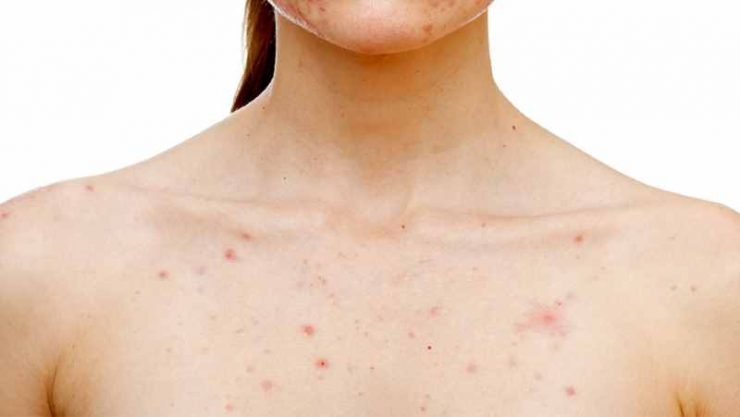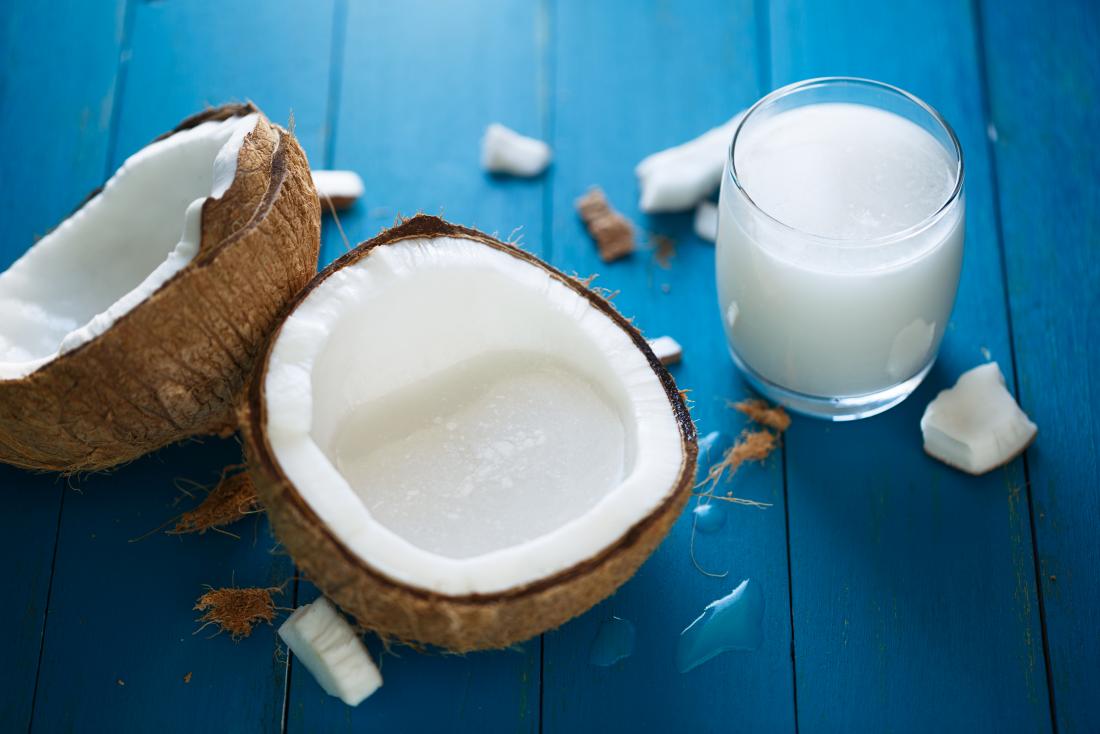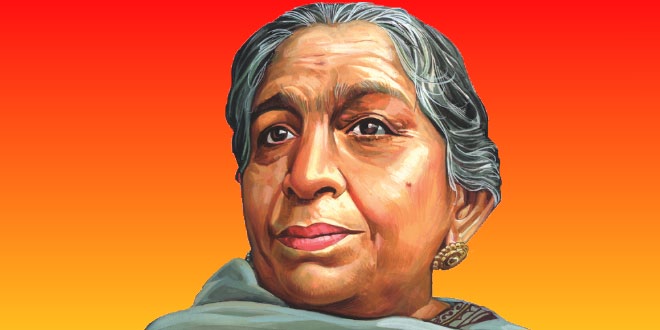Nobody likes getting pimples, whether on face or breasts. Acne can happen to anyone at any age and appear on different parts of the body for a variety of reasons. It’s important to remember that it’s treatable and while uncomfortable, pimples aren’t usually a major health risk.
Breast pimples can be treated by changing certain habits and using over-the-counter (OTC) medications or a combination of the two. Often this is enough to provide relief.
In This Article:
- Causes of Pimples on Breasts
- Medications for Pimples on Breasts
- Things Not to Do
- Home Remedies for Pimples on Breasts
- When to See a Doctor?
All You Need to Know about Pimples on Breasts
Causes of Pimples on Breasts
Pimples are formed when a hair follicle gets clogged with sebum or dead skin cells. Sebum is an oil that’s made in glands connected to hair follicles. The sebum travels through hair follicles to help add moisture to the skin and hair. When extra sebum and dead skin cells build up, they block the skin pores and bacteria begin to accumulate which end result is a pimple.
White head pimples form when the follicle wall swells out and blackhead pimples form when the bacteria in a clogged pore become exposed to air.
Certain things which can cause pimples are –
- Genetics – acne can run in families.
- Diet – some research studies show that dairy products might be linked to acne. A 2009 study found a connection between the amount of dairy eaten and the risk of developing acne as well as breast cancer. Chocolate and carbohydrates may also be a suspect. A 2015 study linked certain foods to an increased risk of acne which are refined carbohydrates, milk and dairy proteins, trans fats, and saturated fats.
- Medications – medicines such as corticosteroids, thyroid hormones, and some antibiotics may have an effect on acne.
- Hormones – changes in hormone levels commonly contribute to acne during puberty. In women, pimple outbreaks can be linked to hormonal changes that happen during menstruation and pregnancy.
- Stress – stress can add to acne woes, not directly causing it but potentially worsening it. Some doctors think that stress affects the glands that produce sebum, an oily substance made from fats.
- Exercise hygiene – poor exercise hygiene may lead to an increase in acne breakouts. Sweat can clog pores and the breasts tend to sweat more than some other parts of the body. Shower promptly after exercising and change out of sweaty clothing, including bras, to prevent bacteria from becoming trapped close to the skin.
- Tight or irritating clothing – wearing clothing that is too tight or not breathable can increase a person’s risk of developing pimples. Also, fabrics that irritate the skin can make acne worse. Scratched or broken skin is especially vulnerable.
- Body lotions and creams – some body lotions and creams can cause a person to develop pimples on the breasts which include thick moisturizers, scented body lotions, and certain sunscreens.
Medications for Pimples on Breasts
If there is no relief from home remedies, contact the doctor. Doctor specialists in skin conditions and treatments can help determine what’s contributing to the breast pimples. Also, stronger topical medications or oral medications are prescribed to treat pimples.
Things Not to Do
These are some things that can make pimples worse or more irritated. Avoid –
- Using harsh soaps with ingredients like alcohol which dries out the skin
- Scrubbing too hard
- Popping, squeezing or picking at pimples which can lead to scars
- Staying in sweaty clothing after a workout
Home Remedies for Pimples on Breasts
Try some of these easy home remedies and lifestyle changes to help treat pimples on the breast –
- Wash area regularly – wash the area properly twice each day with a mild soap.
- Wash oily hair – if you have long hair that reaches the chest, it could be contributing to pimples. Wash the hair when it feels oily.
- Rinse off sweat – must shower after a workout or period of heavy sweating.
- Avoid the sun – avoid exposing the chest to the sun.
- Use oil-free sunscreen – use sunscreens that are oil-free so they won’t clog any pores.
- Try tea tree oil – tea tree oil can be bought as a gel or wash which might help to reduce acne.
- Topical zinc – creams and lotions made with zinc might help cut down on breakouts.
- Birth control – for some women, the hormones in birth control help to regulate acne.
- OTC creams and gels – use ones with ingredients that include – benzoyl peroxide, sulfur, resorcinol or salicyclic acid.
- Practice good exercise hygiene – wearing clean workout clothes.
- Cut back on dietary causes of acne – reduce the consumption of dairy products and foods high in saturated fats.
- Reduce stress – a range of methods can help a person to ease stress including yoga and meditation.
- Wear loose and breathable clothing – avoid or reduce pimples on the breasts by choosing loose-fitting and breathable clothes.
When to See a Doctor?
In some cases, pimples on the breasts could be a sign of an infection or a potential warning for breast cancer. For example, in breastfeeding women, the appearance of pimple-like bumps may be a sign of a yeast infection. According to the American Cancer Society, skin irritation or dimpling might be an early sign of breast cancer.
Conclusion –
If pimples don’t look like regular acne and are especially painful or don’t go away with regular home or OTC treatments, contact the doctor.
Sources:
- https://www.healthline.com/health/beauty-skin-care/pimples-on-breasts#when-to-seek-help
- https://www.medicalnewstoday.com/articles/322554#takeaway













